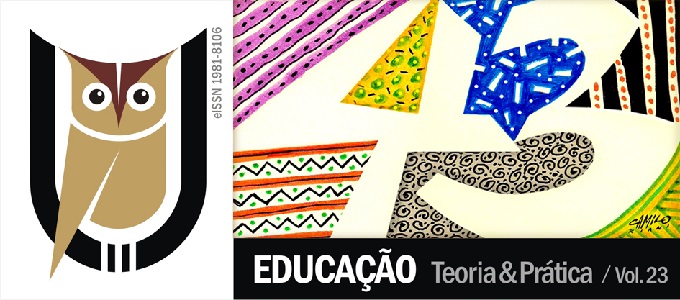The (in) visibility school: implications of external assessments in the school context
DOI:
https://doi.org/10.18675/1981-8106.vol23.n43.p24-43Keywords:
External Assessments. Performativity. Managerialism. Negotiated QualityAbstract
In Brazil, since the 1990s, the policies of large-scale assessments follow world politics and settled with the main objective of verifying the quality of education. After nearly 20 years, are visible the impact of these policies in public schools. The disclosure promotes a results-based visibility and, concomitantly, an invisibility of schools. We discuss the effects that these assessments have promoted the work of teachers and schools, focusing on tensions generated from the national examinations for which the school is basic. We try to also point out possibilities for assessments, linked to internal evaluation processes, to give within a training paradigm and anchored in the concept of negotiated quality, pointing to the development of the school, the teacher and student learning. Share analysis of research conducted in schools in the early years of elementary education at a municipal network. Data were collected through interviews and observations. We found that the ratings change pedagogical practices within schools presenting features neotechnicists, performative, and managerial control of the curriculum. In addition to our critical analysis, the research also focuses on purposeful looks.Downloads
Additional Files
Published
How to Cite
Issue
Section
License
Authors who publish in this journal agree to the following terms:
a) Authors assign copyright to the journal, with the work simultaneously licensed under the Creative Commons Attribution License that allows sharing of the work with acknowledgment of authorship and publication in this journal.
b) The policy adopted by the Editorial Committee is to assign copyright only after a period of 30 months from the date of publication of the article. After this time, authors interested in publishing the same text in another work must send a letter to the Editorial Committee requesting the release of the assignment of copyright and wait for a response.
c) This journal provides public access to all its content, since this allows greater visibility and reach of published articles and reviews. For more information on this approach, visit the Public Knowledge Project, a project that developed this system to improve the academic and public quality of research, by distributing OJS as well as other software to support the public access publication system to academic sources. The names and email addresses on this website will be used exclusively for the purposes of the journal and will not be available for other purposes. This journal provides open any other party  This work is licensed under a Creative Commons License
This work is licensed under a Creative Commons License











